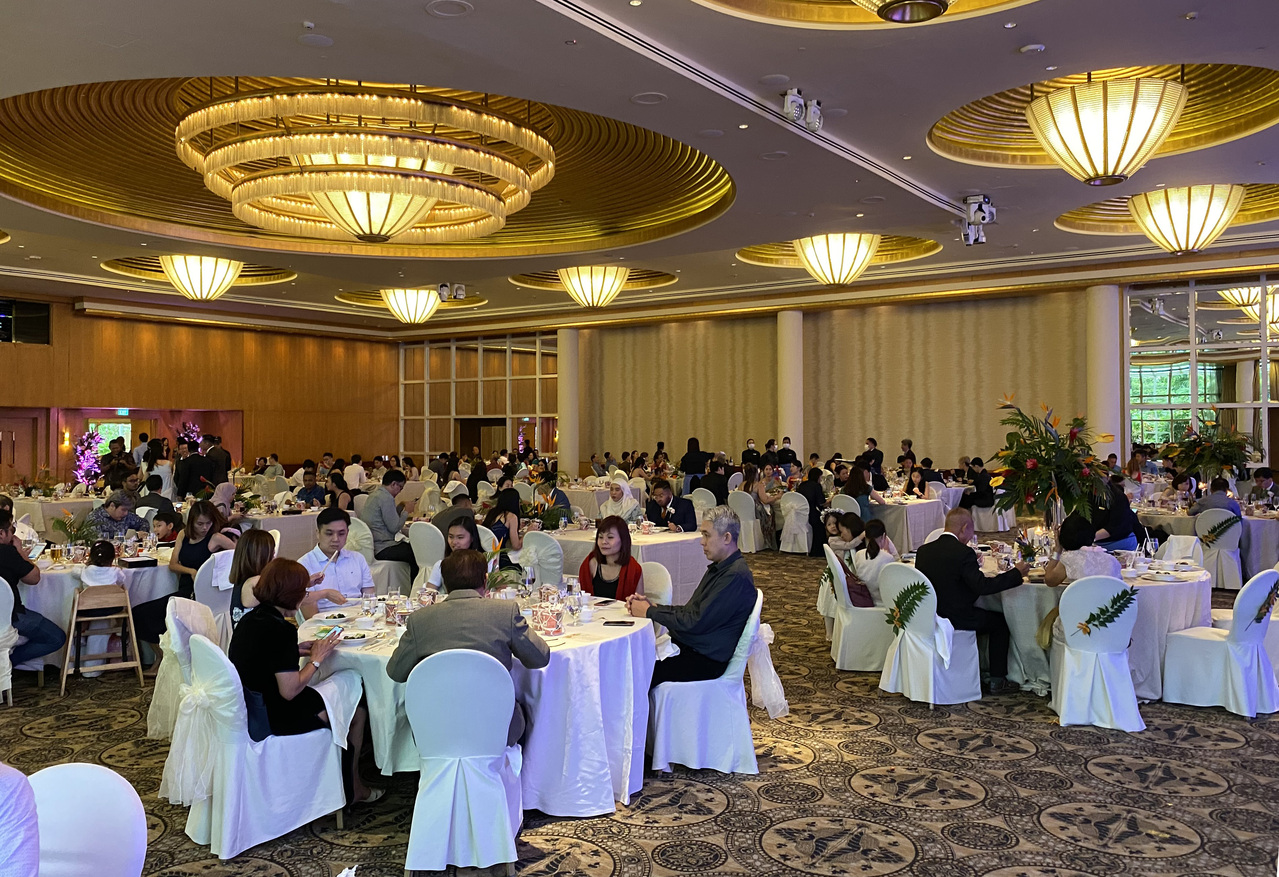Coronavirus: New law to protect wedding venue deposits, private-hire drivers' monthly instalments to be proposed next week
Sign up now: Get ST's newsletters delivered to your inbox

Events covered would include those held on or after Feb 1, and those booked before March 25.
ST PHOTO: HAIRIANTO DIMAN
SINGAPORE - Couples who have booked wedding venues such as hotels but have had their wedding plans disrupted by the Covid-19 pandemic would not have to forfeit their deposits, under laws to be proposed next week.
The Covid-19 (Temporary Measures) Bill also aims to protect other individuals, such as private-hire drivers who are unable to afford monthly instalments on their hire-purchase loans.
The proposed law to be tabled by the Ministry of Law (MinLaw) next week would provide relief of at least six months to individuals and businesses who are financially impacted by the pandemic.
However, it would not absolve or remove the contractual obligations, but merely suspend them for the prescribed period - which may be extended to up to a year by the Minister.
The proposed law would cover event-based contracts, such as venue bookings and catering for weddings; tourism-related contracts that provide goods or services, such as hotel accommodation; and loans granted by banks or finance companies for business purposes.
In the case of event contracts, it would cover those that have or will be postponed due to the impact of Covid-19, and held on or after Feb 1, and those booked before March 25.
MinLaw cited an example to illustrate how the new law would work: After placing a deposit with a hotel for a wedding to be held at its premises on March 21, a couple has to postpone the event due to the worsening Covid-19 situation.
If the hotel says it will forfeit the couple's deposit if they do not hold the wedding in three months, the couple can seek the ministry's help and apply for relief from their contractual obligations.
The ministry will then appoint an assessor, who will decide whether to grant the couple a relief order. If it is granted, the hotel must then restore the deposit.
Conversely, if the hotel believes it has grounds to forfeit the deposit, it can state its position to the assessor.
Based on the facts of the case, the assessor will decide on a "just and equitable outcome" for both parties, said MinLaw.
For example, the hotel may be required to return part of the deposit to the couple, after deducting expenses that were reasonably incurred by the establishment.
Alternatively, the hotel may be allowed to forfeit either the entire deposit or part of it, if the couple decide to cancel the booking.
Couples whose deposits have already been forfeited by the hotel before the Bill is passed, and whose contracts fulfil the stipulated timeframe, may also be able to get their deposits restored by hotel retroactively, said Minister for Law and Home Affairs K. Shanmugam.
The same principles for event-based contracts would also apply to tourism-related contracts in the same timeframe.
Private-hire drivers would also be able to seek similar protection.
Citing another example, MinLaw said a driver may not be able to afford his monthly instalments for February and March because he has had fewer passengers and a reduced income as a result of the pandemic.
Under the proposed law, the finance company providing the loan would not be allowed to repossess the car, or start or continue court or insolvency proceedings against the driver, if he is granted relief.
The assessor may call for the driver to pay one or more instalments during the relief period, depending on the circumstances of the case.
Separately, the Bill would also temporarily revise the limits for bankruptcy, from a monetary threshold of $15,000 to $60,000.
The time period in which an individual must satisfy a statutory demand would also be increased, from 21 days to six months. Similarly, the time period for the setting aside of statutory demands would be increased from 21 days to six months.
The monetary threshold for the Debt Repayment Scheme would also be raised, from $100,000 to $250,000.



